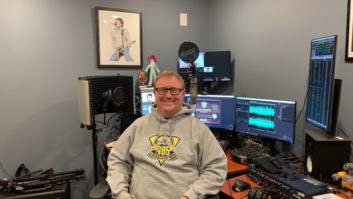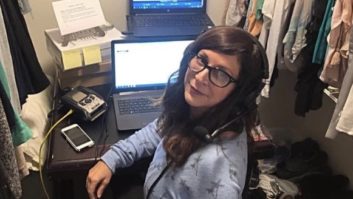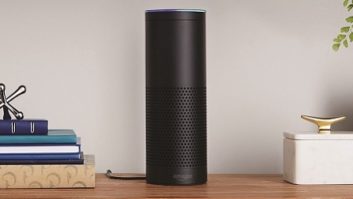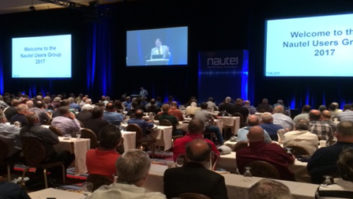COPPELL, Texas When Google put its Google Radio Automation up for sale, industry observers began speculating who might be a suitor while broadcasters wondered how a sale might affect service agreements.
Google assured clients that service would not be affected. Meanwhile, radio observers don’t expect a bidding war for the company’s radio automation system, saying business for automation companies is soft in the current advertising market. Most agree that Google Radio Automation will not fetch anything near the $102 million in cash Google paid for dMarc’s assets in 2006.
Yet some also said the radio automation marketplace remains strong despite the recession and that radio stations might be cutting personnel to trim costs but are investing in technology to keep stations running.
Google spokesman Brandon McCormick declined to give details about the impending sale of Google Radio Automation for this story.
Questions for some observers lingered. Will Google sell the latest versions of its automation or will it look to sell older software, including that for the former Scott Studios SS32 and Computer Concepts Maestro digital automation systems?
“Are they selling the old software, the original software as it stood from dMarc, or are they going to sell the new automation product? The (new automation product) is a bit more unproven, but they may want to hang onto it because of the Internet radio applications,” said Ron Paley, founder and chief technology officer for OMT Technologies, which makes the iMediaTouch Radio Automation System.
All this is playing out while competitors — who were startled when new media giant Google entered their market three years ago — now position themselves to take advantage of the company’s latest unexpected move.
Potential buyers?
Google aimed to reassure automation customers that it is committed to maintaining support and normal business operations until a sale it completed.
“We are committed to making this a seamless transition for you,” it wrote customers. “Your automation system will continue to operate, and you will be able to access our sales, support and business operations teams as before.”
Google acquired the automation technology from dMarc Broadcasting in 2006 to accompany its efforts to launch the Audio Ads platform of radio ad placement. Several industry watchers said they believe about 30 percent of existing radio automation systems in the field in the United States are Google or former Scott Studios SS32 or Computer Concepts Maestro digital automation systems.
Who might be interested in buying the automation business?
“We can’t speculate on a buyer, but we think there are companies in the industry for whom this product would make sense,” Google spokesman McCormick said.
Google is likely to screen any buyers carefully, said Dave Scott, an observer with more than a passing interest. He founded Scott Studios and later sold his company to dMarc Broadcasting in 2004.
“Radio stations are likely to get adequate service from any buyer that would pass muster with Google,” Scott said. “The difference might be in the corporate culture.”
Scott himself is interested in re-entering the radio automation business if “price, terms and conditions” could be worked out with Google. In March, he said he was considered an official bidder for the service.
Another option for Scott would be going into the aftermarket business of supporting various automation systems — continued or discontinued — now that the radio industry has reached a “saturation point” with automation systems.
“The radio automation business is now merely replacements and upgrades rather than groups purchasing full automation systems,” Scott said.
Other automation suppliers said they expect there will be opportunities opening for them as Google sheds radio automation.
“It does open the door for all automation makers to talk with Google clients. More so now than ever, broadcasters need dependable technology. We believe that’s what we have,” said OMT Technologies’ Paley.
Vendors watch closely
Jim Roberts, product manager of datacast systems for Broadcast Electronics Inc., which makes the AudioVault digital automation system, said, “Google tried to enter the radio advertising business market by leveraging an automation system. It’s the equivalent of buying an airline to capitalize on advertisements in the in-flight magazine. The message we received was that Google really wasn’t putting forth the effort to support the automation side.”
Google spent much of the fourth quarter of 2008 trying to give away its software, Roberts said, citing a specific ad that ran in radio trade publications, including Radio World, which stated “Trade up to Google Radio Automation from any competing automation system before Dec. 21, 2008 and we’ll give you our software absolutely free — saving you up to $10,000 per station.”
Roberts said, “We are hearing from customers that they effectively de-valued the SS32 brand, leaving many stations looking for new and better solutions.”
When contacted, several other radio automation providers declined to comment specifically on Google’s plans or who might pursue the company’s automation assets.
“It’s just a shame that as many as 40 people are losing their jobs at this difficult time in the industry,” said Don Backus, vice president of sales and marketing for ENCO Systems.
Google has said it is eliminating 40 jobs from its radio operations. It’s unclear how many jobs are being cut from its Google Radio Automation facility near Dallas. Also unclear is the fate of Jim Woods, Google’s director of product management, audio. A Google spokesman declined to discuss specific personnel.
One radio analyst theorizes it might make sense for a large radio group operator to step up and purchase at least an interest in Google Radio Automation.
“It you are a broadcaster with a lot of stations tied to this automation, it might make sense to buy it and prop it up as a way to keep it in business and maintain service,” said Mike Henry, chief executive officer of Paragon Media Strategies.
Clear Channel has an automation provider; it owns RCS, which controls the Prophet Systems radio automation used by many Clear Channel stations (RCS declined to comment on the business dealings of a competitor for this story). Similarly, Cumulus owns Broadcast Software International.
Dave Scott said the economy does deserve some blame for Google’s failure to execute its Audio Ads platform, and therefore the automation system, successfully.
“The general economy and radio’s current slump go hand-in-hand,” he said. “Just because radio and Google weren’t the fit Google once thought they were doesn’t make radio any the lesser.”
Scott said he “knew when to sell” to dMarc Broadcasting in 2004. Many industry observers agree he might be ready to buy again if the price is right.












